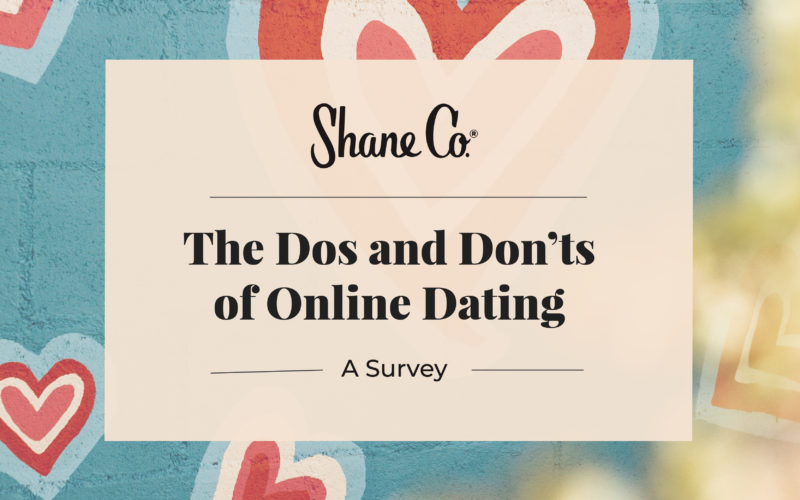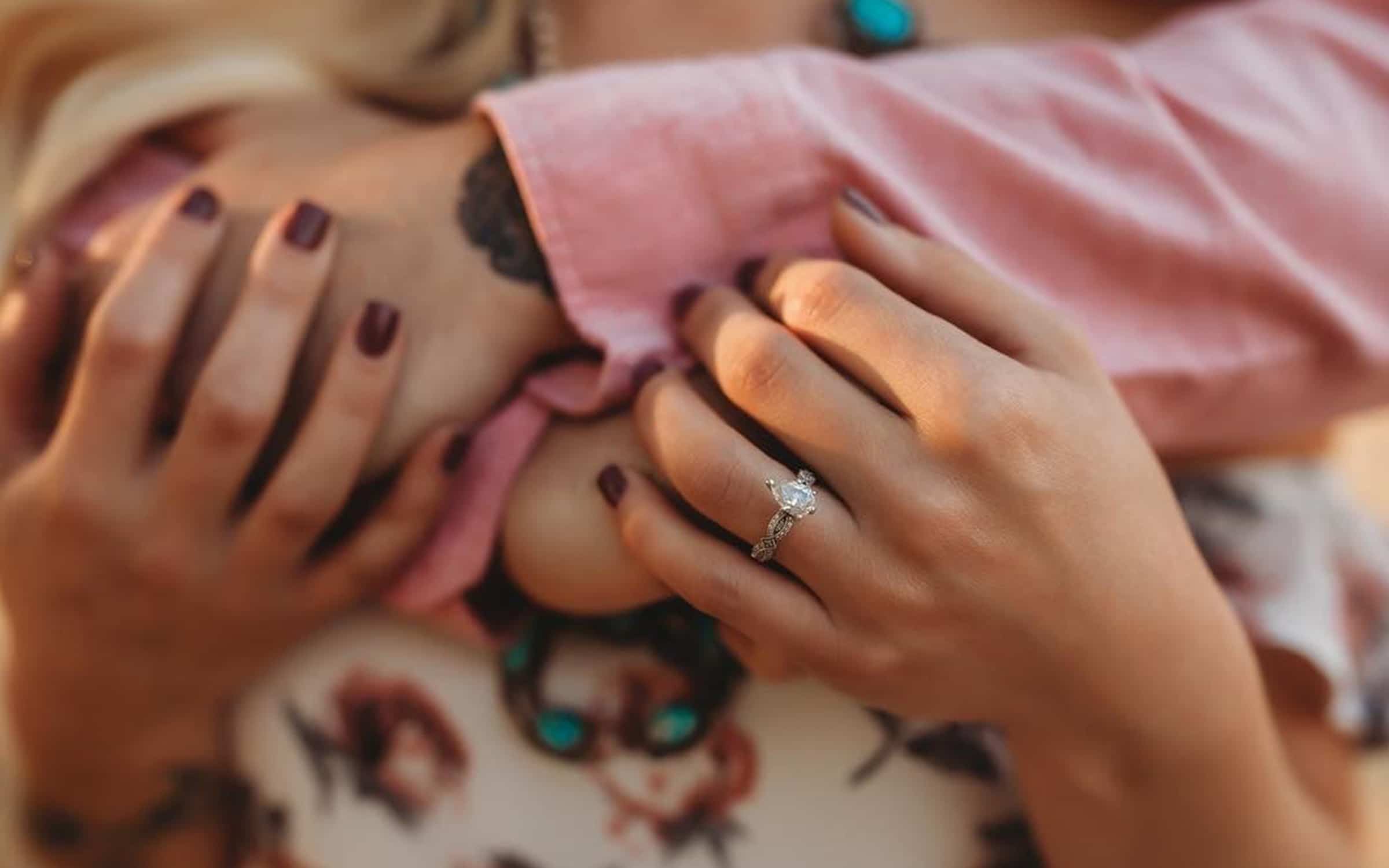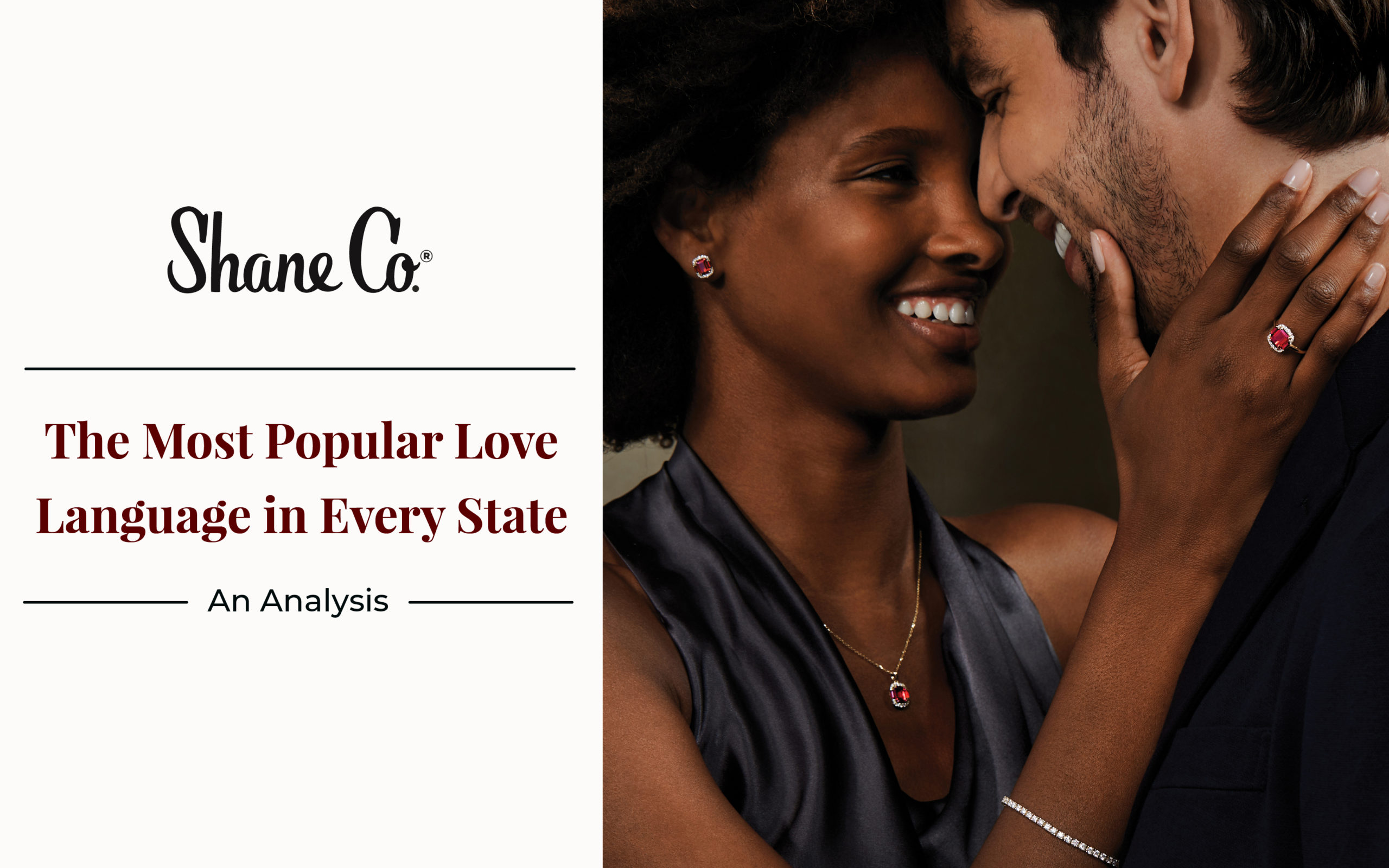Dating app usage rates were already flourishing pre-COVID-19, but with a global pandemic and social distancing measures thrown into the mix, online dating apps have now become the central force for connecting with other singles and curing the sting of loneliness. According to CNBC, in March 2020, Bumble experienced a 26% spike in the number of messages sent while Tinder saw the length of conversations increase by 10-30%.
With this influx of virtual dating activity, the team at Shane Co. was curious to find out:
- How receptive are singles toward virtual video calls on dating apps during COVID-19?
- What are some of the most tedious dating app behaviors, photos, and pickup lines?
- How do singles deal with notorious online dating faux pas regarding read receipts, sliding into DMs, and ghosting?
We quenched our thirst for answers by surveying over 1,000 singles of varying ages across the United States about their online dating app preferences and habits for an exclusive glimpse into the digital dating culture of 2020. The survey ran from June 4 to June 8, 2020. Read on to see the results!
Survey Findings
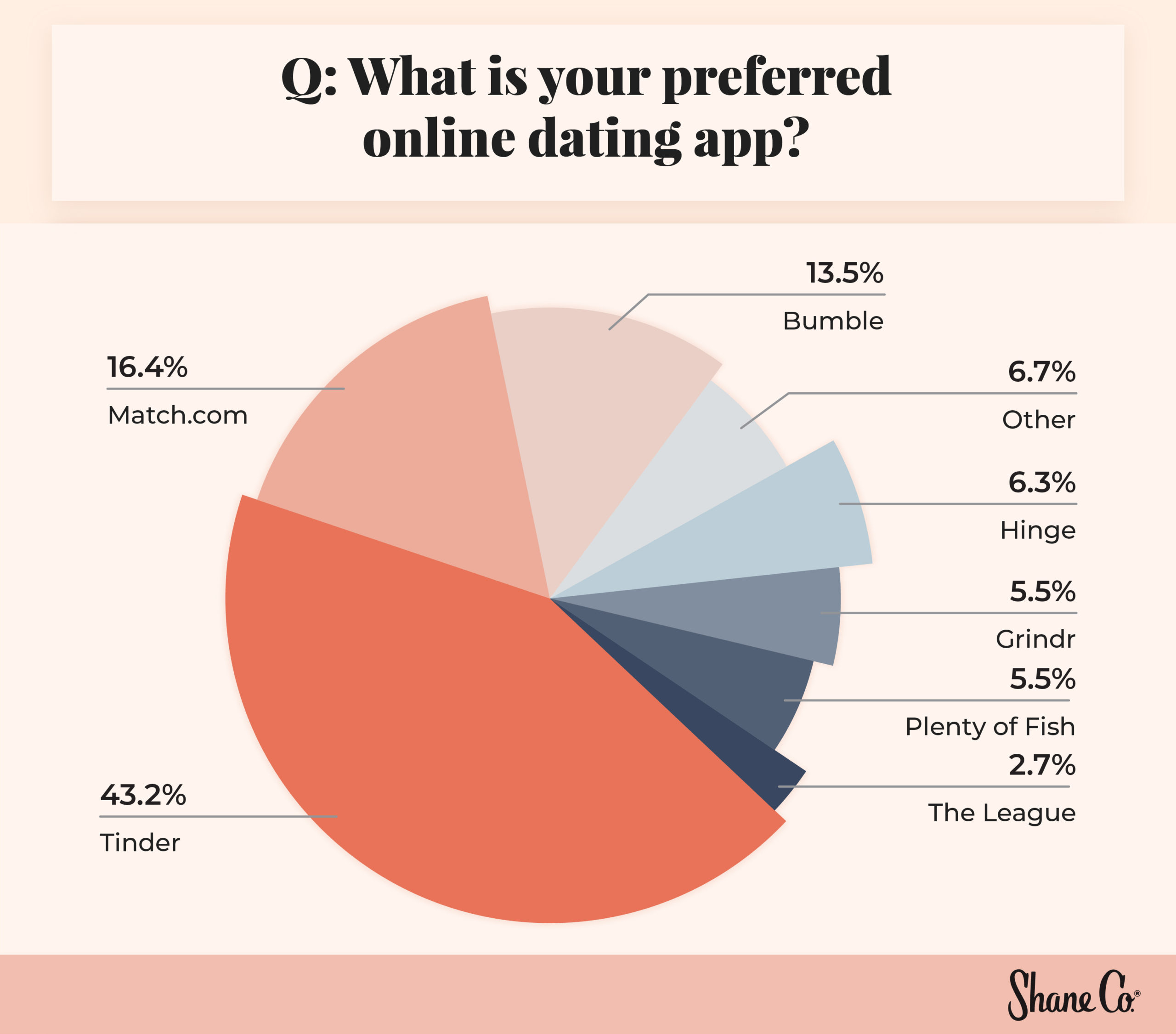


When asked about their preferred dating app, the majority of singles surveyed (43.2%) named Tinder their app of choice, followed by Match.com (16.4%) and Bumble (13.5%). Women were almost twice as likely as men to prefer Match.com or Bumble above Tinder. This checks out, given Match.com is known for providing highly personalized matches and Bumble is considered the “ladies first” dating app, where women initiate the conversation, rather than the other way around.
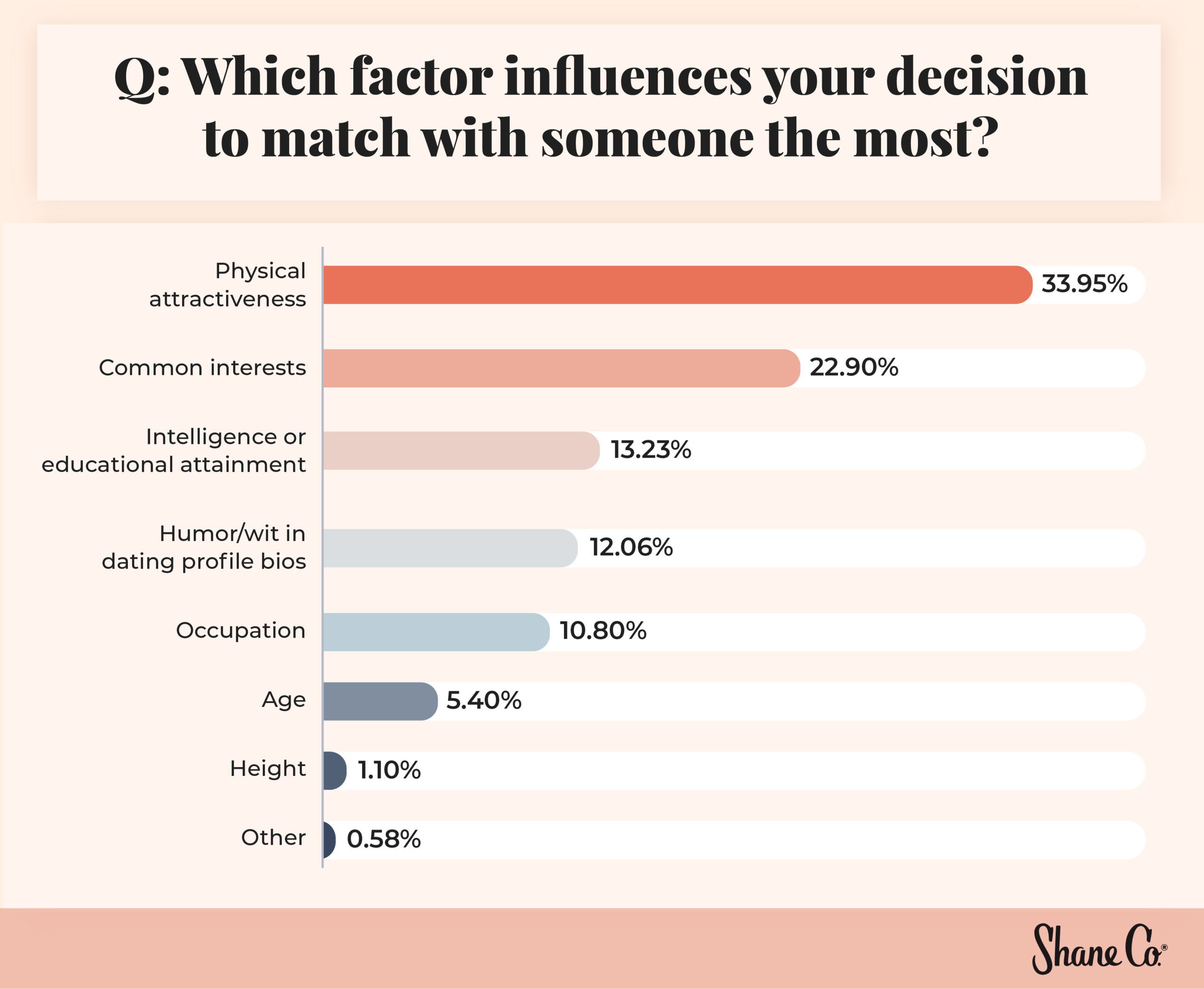


When asked which factor influenced their decision to match with someone most, the majority of singles surveyed (34%) said physical attractiveness. Common interests (22.9%) and intelligence/educational attainment (13.23%) were also among the most important factors. Survey results also revealed that Baby Boomers are influenced by age more than any other generation, and Gen X is influenced by humor or wit in dating bios more than any other generation.
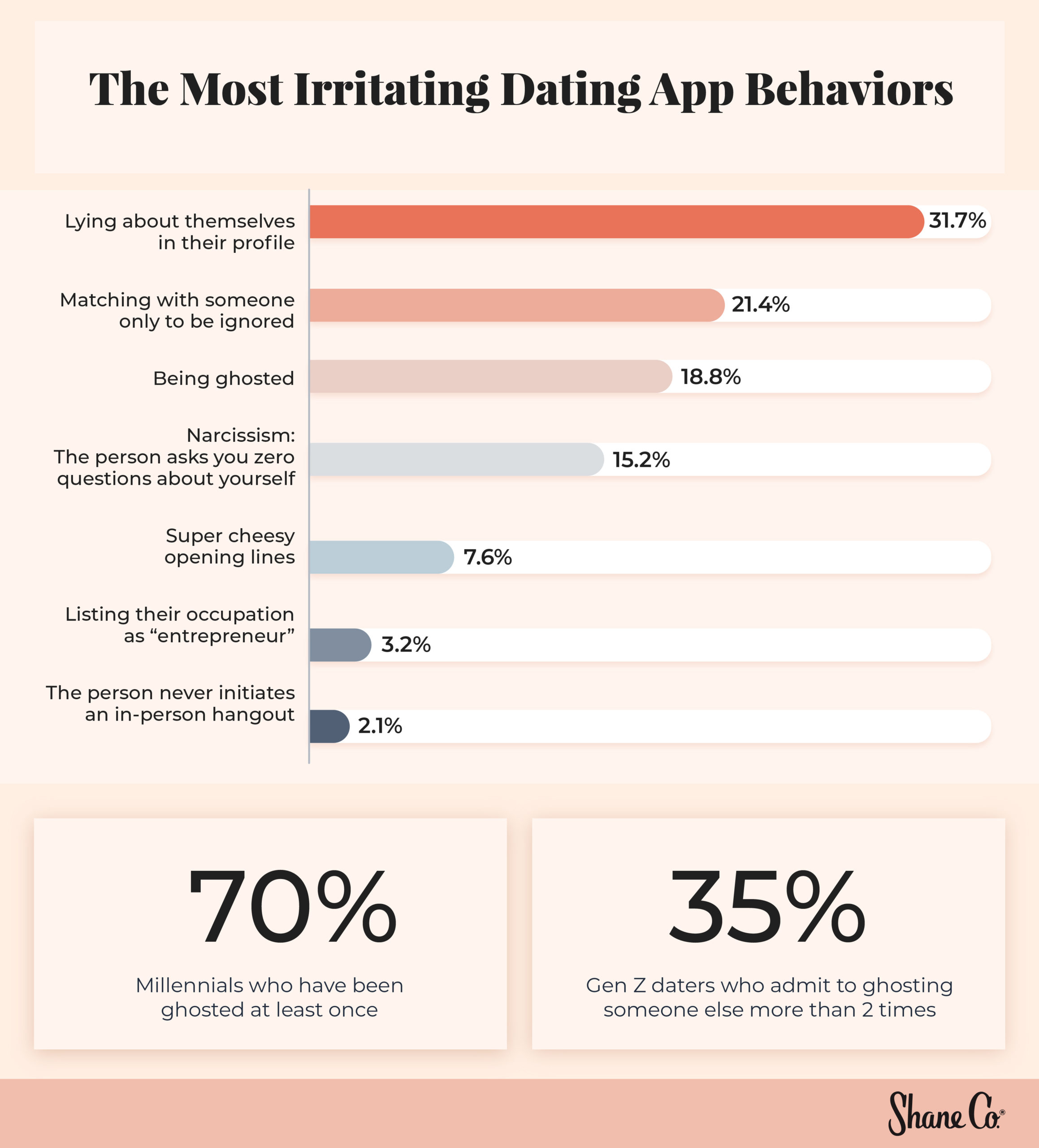


When asked which dating app behaviors irritated them most, the majority of online daters (31.7%) said when others lie about themselves in their dating profiles. Other behaviors daters are especially peeved by include matching with someone only to be ignored, as well as being ghosted entirely by someone you’ve been talking to or dating.
For those who are new to the term, ghosting (per Urban Dictionary) is “when a person cuts off all communication with the person they’re dating with zero warning or notice beforehand.” Survey results found that 70% of Millennials have been ghosted at least once, while 35% of Gen Z daters have been doing the ghosting (more than twice).
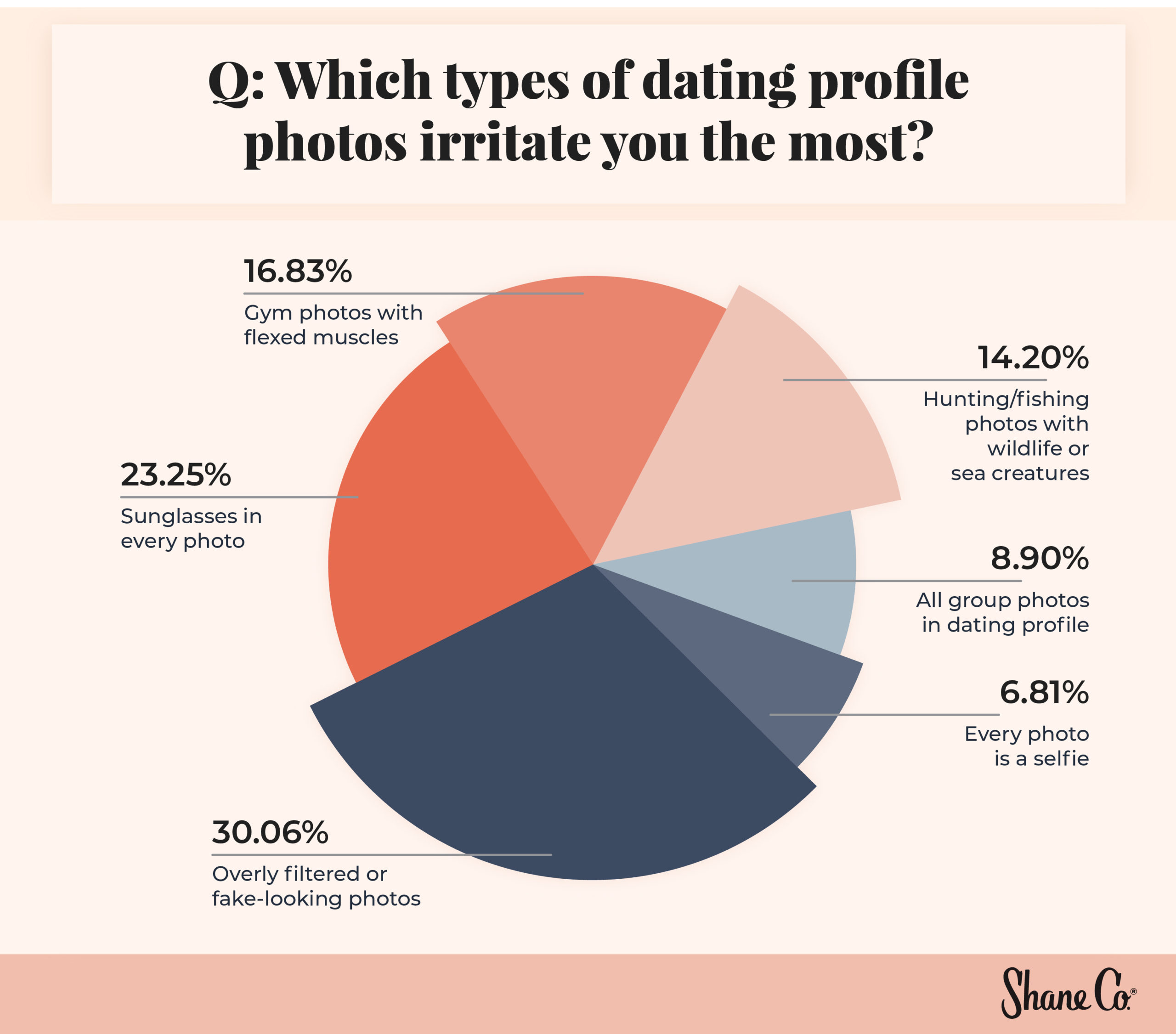


30% of online daters are irritated most by photos that appear fake or overly filtered. Gym photos with bulging muscle flexes (16.8%) and fishing photos with large fish or other sea-dwelling creatures (14.2%) also seem to be offensive.
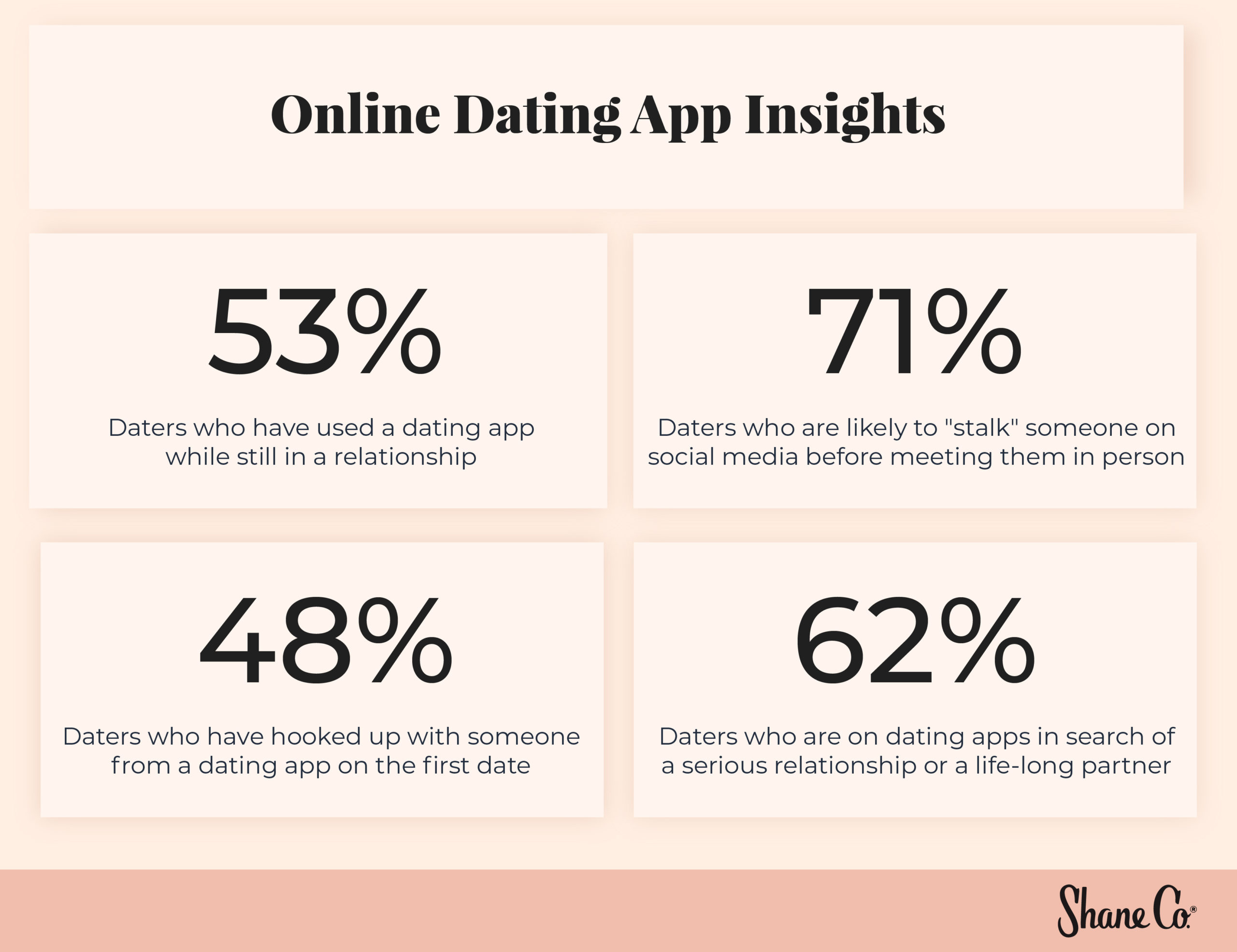


Shockingly, 53% of all survey respondents have indeed used a dating app while still in a relationship. 71% of online daters are likely to stalk someone on social media or conduct a few Google searches of their match before meeting up with them in person. Thus, it never hurts to do your research to ensure your match isn’t a mass murderer before committing to the first date.
48% of respondents overall and 73% of Millennials admit to hooking up with someone from a dating app on the first date. Over 62% of respondents list finding a serious relationship or a lifelong partner as their main motivator for being active on dating apps. Gen X is looking for a lifelong partner more than any other generation, whereas the majority of younger Gen Z respondents are looking for a casual relationship.
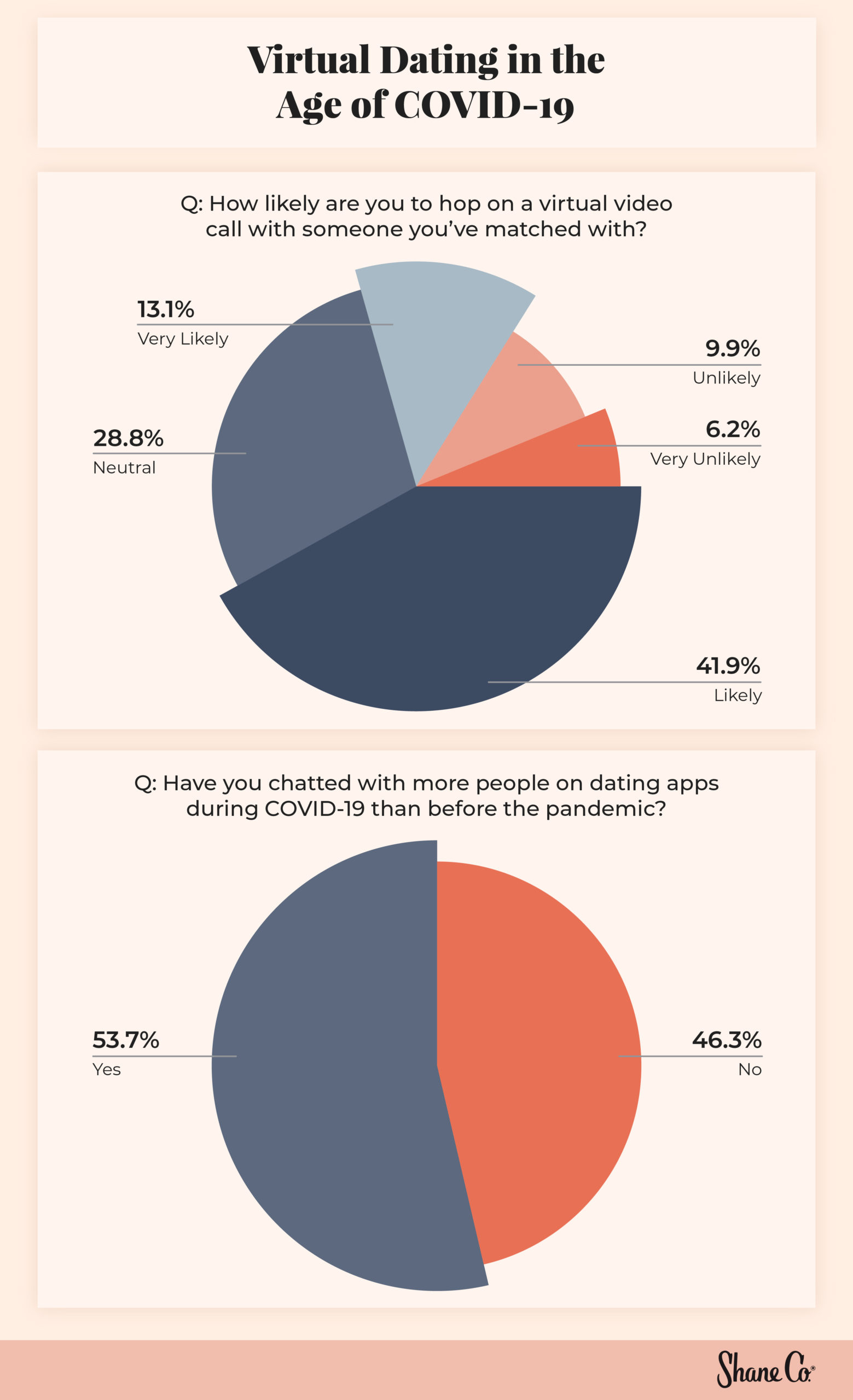


Taking a pulse on swipe culture during COVID-19, survey results found that 53.7% of respondents have chatted with more people during the pandemic than before the pandemic started. What’s more, over 55% of singles are either likely or very likely to hop on a virtual video call with someone they’ve recently matched with.
Dating apps like Hinge are now accommodating the masses of singles in search of virtual romantic connection by providing a “date from home” feature, where daters can hop on a mutually consensual video call with their match. There comes a time when messaging only goes so far, and if daters can’t rendezvous in person, then they’ll opt for the next best option.
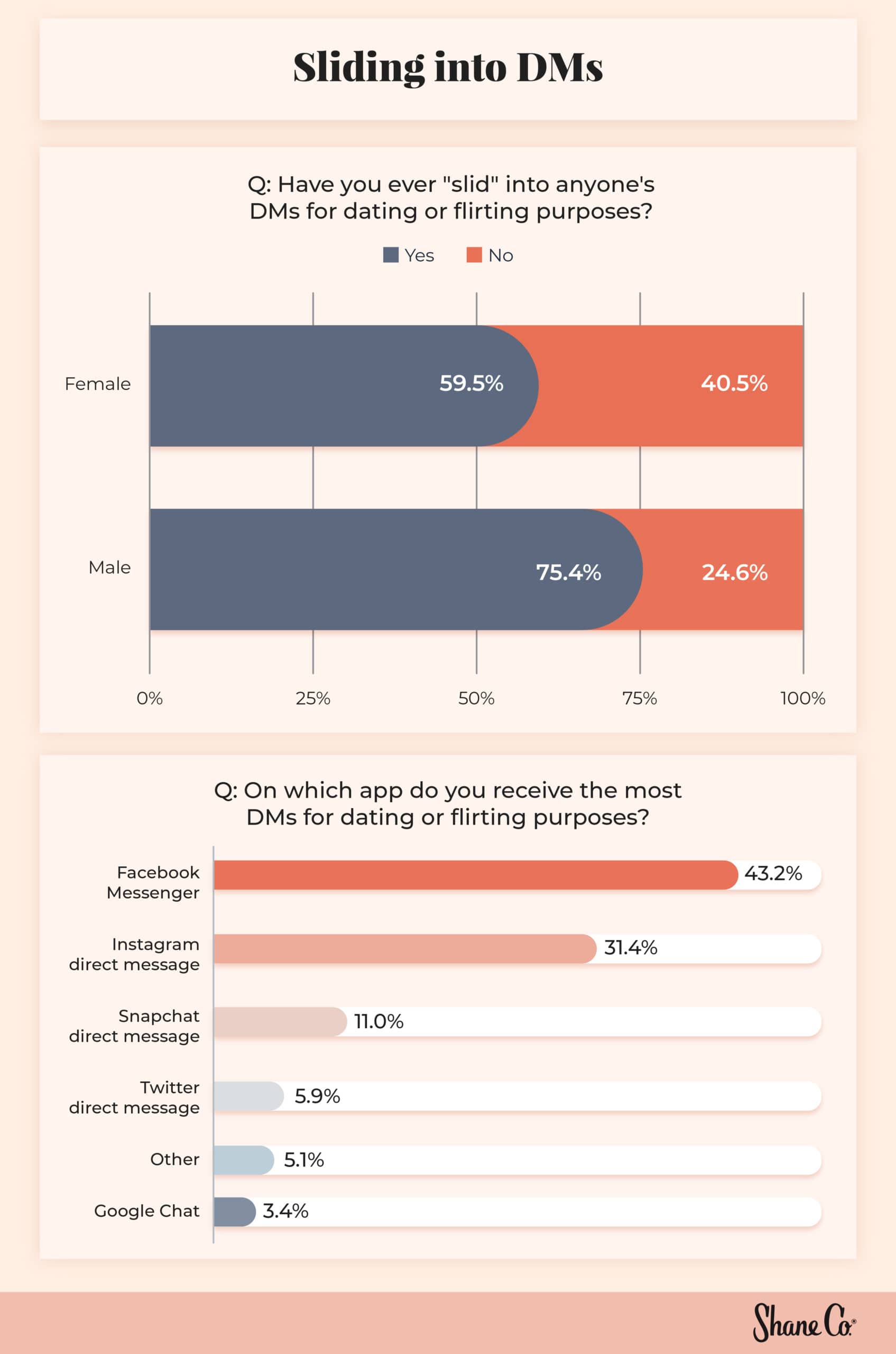


Another behavior synonymous with online dating is the infamous “DM slide,” where someone sends a direct message (DM) to another on social media for the purpose of flirting or dating. Sliding into a DM is a bold maneuver — a domain where few have prospered, but where most have failed.
The majority of respondents (70%) have at least made attempts, and their social media app of choice for such a slide is, by and large, Facebook Messenger. When asked how they feel when someone slides into their DMs, male respondents were more likely to feel flattered, while female respondents were more likely to feel creeped out.
Wrapping Up
Several complex and unspoken rules exist within the world of virtual dating, but we hope these insights will act as a useful guide to dating app etiquette for singles moving forward in 2020. Luckily, the collective intentions are good, as the majority of respondents are using dating apps as a conduit to find a lifelong partner. Found your life-mate and ready to start ring shopping? Take our MatchMaker quiz to find your dream engagement ring by tapping “like” or “dislike” on a wide selection of styles.
